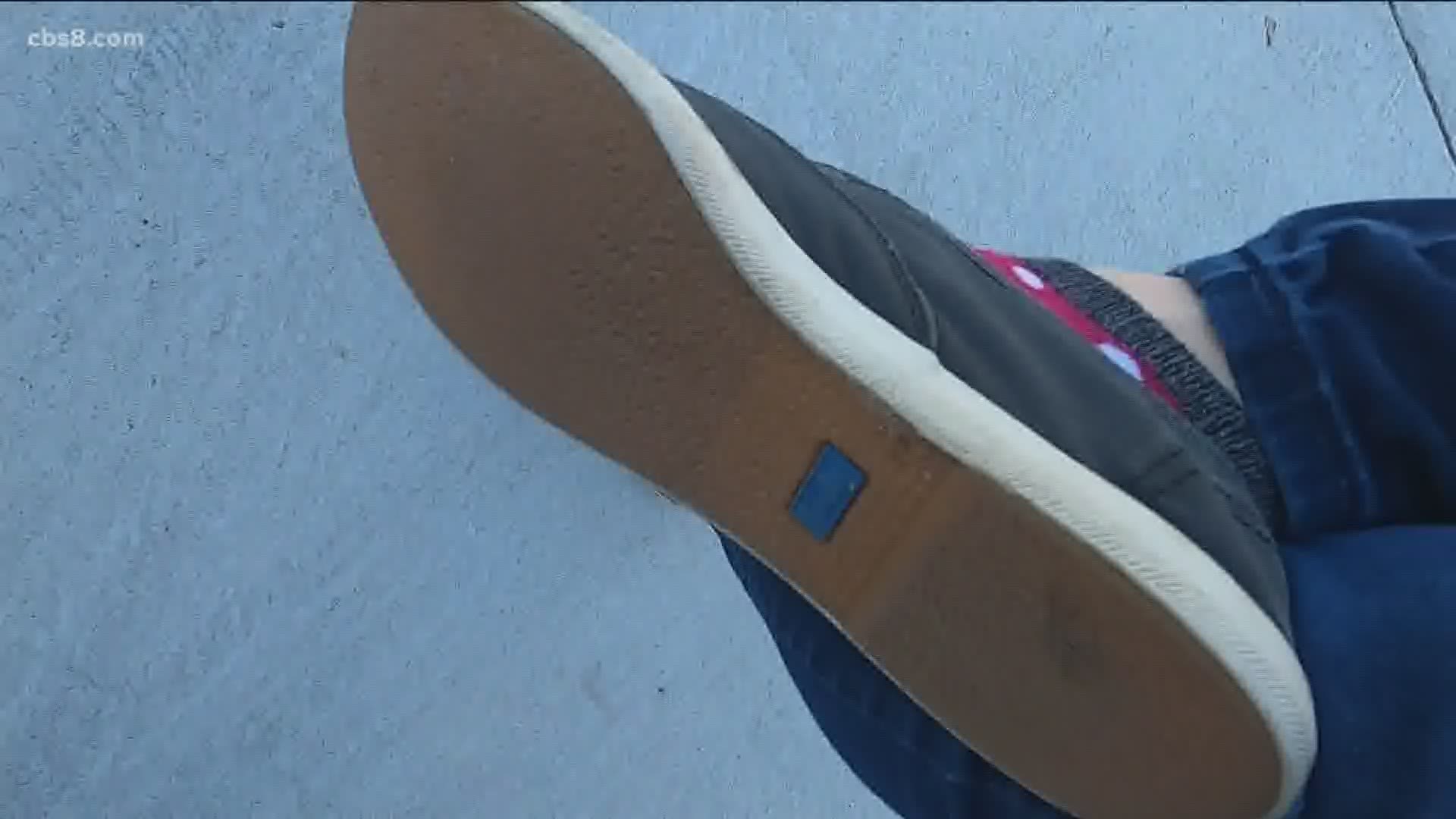SAN DIEGO COUNTY, Calif. — Many people are doing everything they can to stop the spread of the coronavirus, but is cleaning one's shoes one of the things that can help?
A recent study found that could be the case.
The soles of shoes can be a germ magnet, especially when taking into account the number of steps an individual takes during daily activities like going to the grocery store or walking through the neighborhood.
According to a new study by the Centers for Disease Control and Prevention, the soles of shoes can carry the coronavirus. Researchers examined the shoes of medical staff in Wuhan, China, the epicenter of deadly virus.
According to the study:
"As medical staff walk around the ward, the virus can be tracked all over the floor, as indicated by the 100% rate of positivity from the floor in the pharmacy, where there were no patients. Furthermore, half of the samples from the soles of the ICU medical staff shoes tested positive. Therefore, the soles of medical staff shoes might function as carriers."
Dr. Jyotu Sandhu at Sharp Rees-Stealy said the soles of shoes could carry the virus, especially after an individual had walked in an area known to have COVID-19 patients.
"You can transmit a lot of viral particles, bacterial particles that are on the floor unknowingly to different places," Dr. Sandhu.
Are there steps individuals can take to mitigate the spread?
According to Dr. Sandhu, yes. He suggested leaving shoes outside your home, or sanitizing the bottom soles.
"Really just remove all the potential bugs that are on any surface that made contact with the floor," he said.
Upon hearing about the Centers for Disease Control and Prevention report, Monte Deere, the CEO of Kizik - a shoe company specializing in shoes that slip on and off without using your hands - gave away 1,000 pairs to healthcare workers nationwide.
"We've got something that can help people more than we even realized, he said.
Log onto kizik.com to apply.
As for the study, Dr. Sandhu said while it is a wake-up call, not everyone should be alarmed, as long as you're doing whatever you can to mitigate the spread.
"If you're not putting yourself in situations where there's just a cluster of people who are not taking care of themselves, then chances are you're doing your job and you're doing OK," he said.

